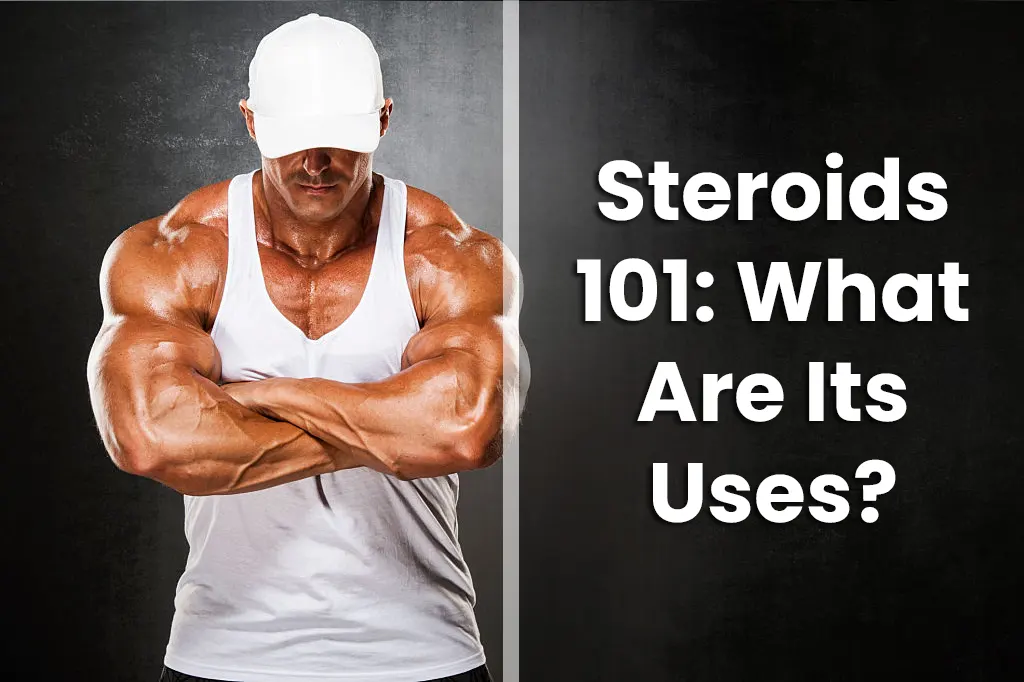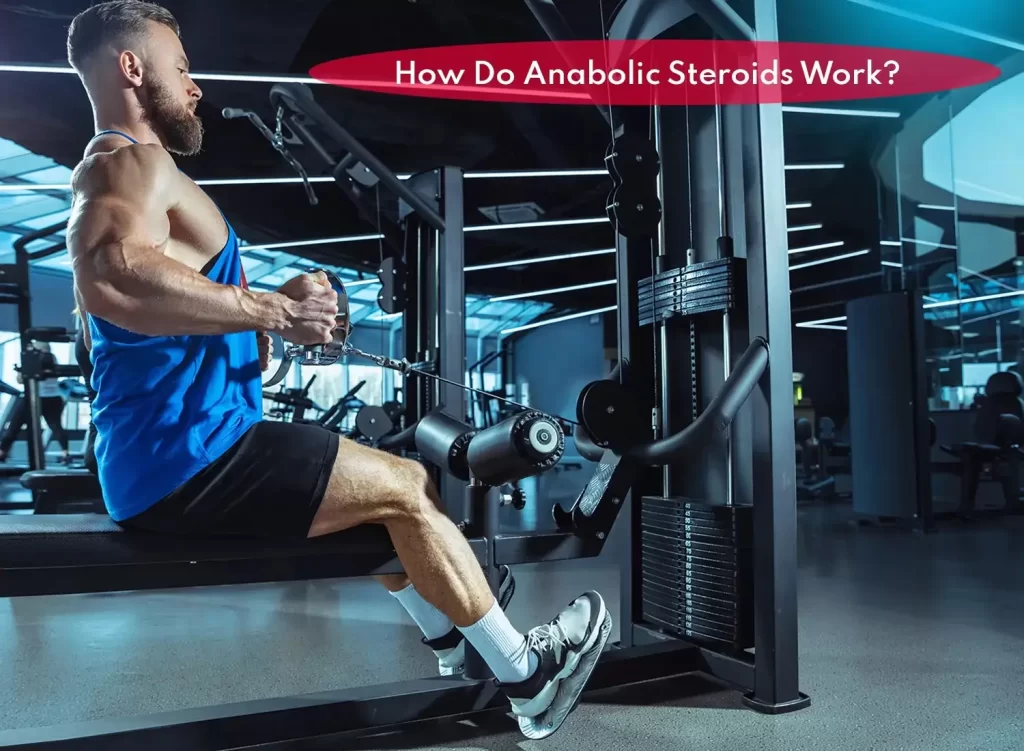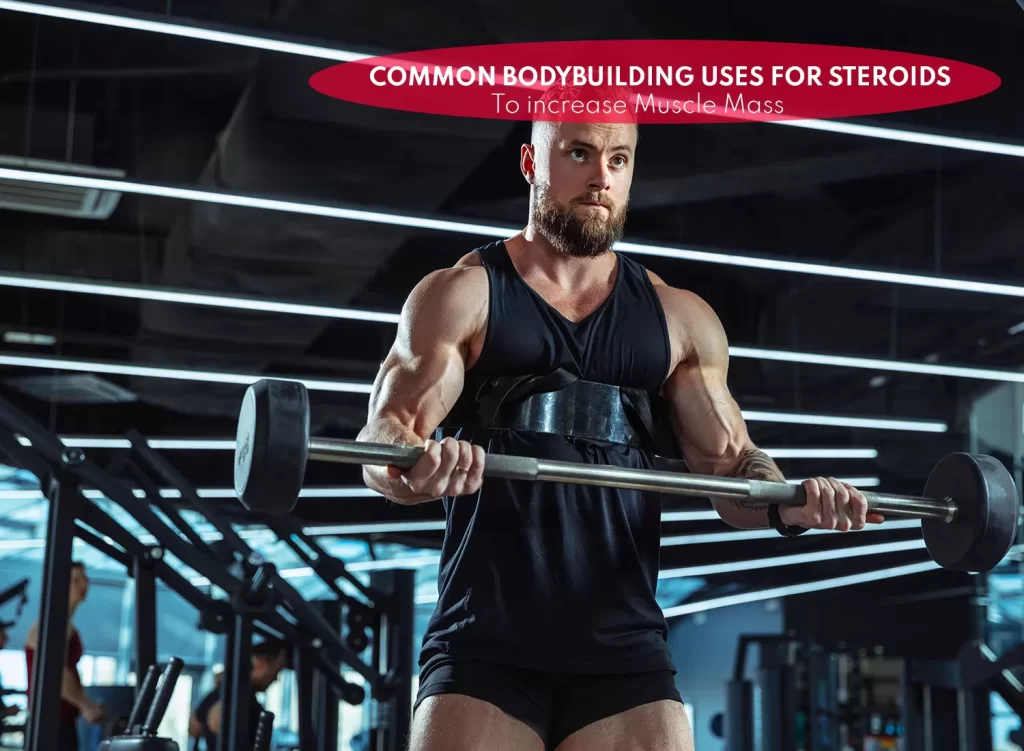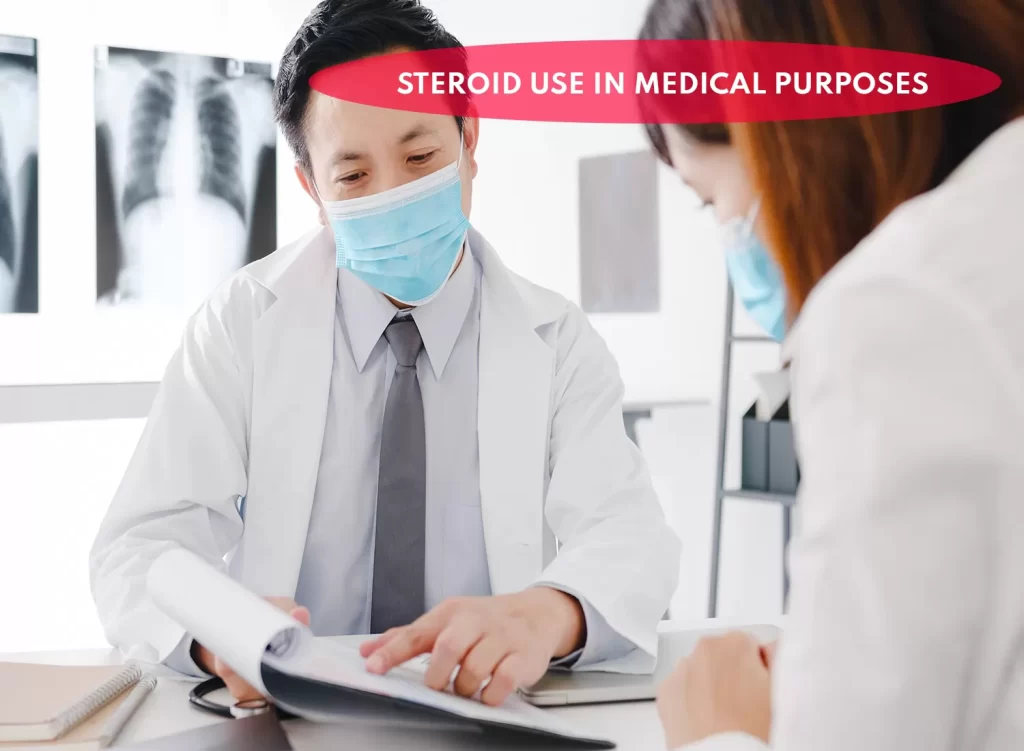Table of Contents
Anabolic steroids are synthetic versions of the naturally occurring male hormone testosterone. They are used to increase muscle mass and strength. Androgens are the formal name for this family of medications, and they are known for their ability to stimulate growth and development in males via their influence on protein metabolism.
For want of a better term, these substances take advantage of the fact that some kinds of cells react to a protein known as the human growth hormone (HGH), which is responsible for regulating cell reproduction. A protein known as IGF-1 (insulin-like growth factor – 1) is produced as a result of the stimulation of HGH synthesis, which has an effect on muscle mass and other cellular structures. Because human growth hormone synthesis peaks during early adulthood and natural testosterone levels gradually fall over time, many athletes attempt to offset this decline by supplementing with testosterone or synthetic analogues of testosterone.
How Do Anabolic Steroids Work?
In order to comprehend how steroids operate, it is first required to distinguish between the anabolic and androgenic properties of the hormones. Put another way, anabolic effects increase cellular development (often referred to as anabolism), and androgenic effects enhance male sexual traits such as deepening of the voice (i.e., virilization). When comparing testosterone to synthetic counterparts such as oxandrolone (Oxandrin), methandrostenolone (Dianabol), stanozolol or nandrolone decanoate, or phenylpropionate (Deca-Durabolin), the most significant distinction is that the latter are more anabolic while the former are more androgenic. As a result, their anabolic effects may be about ten times larger than those of natural testosterone, yet their relative androgenicity (or masculinizing properties) may be just 2-5 percent of that found with testosterone. Because steroids are hormones, they do not merely work in isolation, but rather trigger a cascade of cellular actions that result in physiological changes, such as increased protein synthesis, which aids in the stimulation of muscle growth and development.
5 Common bodybuilding uses for steroids
There are several types of steroids. Many types of steroids may be used to bulk up the body, whilst others can only be used to treat specific disorders such as asthma or to increase the performance of racing horses, among other things (odd, but true).
Body-building steroids, according to the majority of users, provide them with increased strength as well as increased muscle growth. These anabolic steroids will allow you to workout for longer and tougher periods of time in order to get the muscles you want. It is not suggested by the medical community to use steroids as part of your bodybuilding routine since doing so is considered cheating in professional sports. Here are five of the most prevalent applications for steroids:
For the purpose of fat reduction
Yes, this is true! In certain cases, steroids may help you burn calories at a faster pace than you would ordinarily, resulting in you losing weight more rapidly than you would otherwise. Steroids, on the other hand, are most effective when used in conjunction with a healthy diet and high-intensity workout. So, if you want to lose weight but do not have the time to devote to a proper workout regimen, steroids may be a viable option – but it is not recommended because steroids come with their own set of negative side effects, which you will quickly discover if you decide to use steroids for fat reduction.
Improvement in metabolism
Steroids may assist in increasing your body’s natural metabolic rate, allowing you to burn more calories even while you are simply sitting around watching television or reading a book. This can be very beneficial when you are trying to lose weight. Again, when accompanied with adequate exercise and food preparation, steroids are most effective.
To increase muscle mass
This was the initial objective of steroids, and steroids may assist you in achieving more ripped muscles than you ever imagined possible. However, steroids will not help bodybuilders get muscle on their own; instead, drugs will provide them with the additional boost they need to exercise harder and for a longer period of time in order to gain the muscles they want.
Faster recovery from injuries
Athletes and sportsmen who have been injured might benefit from this service. If you are a professional athlete or a fitness enthusiast, steroids may be beneficial in speeding up your healing time if you were injured while participating in your sport. This is owing to the fact that steroids stimulate protein synthesis, which helps your body to generate new muscle cells more rapidly when it breaks down as a result of intense physical activity. The sooner your body recovers from an injury after exercising, the more quickly you will be able to train and heal.
Strength training
When it comes to strength training, steroids may make you stronger than you have ever been, but they can only help you gain muscle bulk to a certain amount. If you want superhuman strength or to be stronger than an iron man, steroids will not provide it for you.
There are a variety of additional applications for steroids (such as bodybuilding), but these are the most prevalent. Even if you want to use steroids just for the sake of strength training, it is recommended that you contact with your doctor beforehand since steroids, when used without medical supervision, may have undesirable side effects.
Steroid use in medical purposes
The first issue is that the patient would not adhere to the prescribed therapy. When taken in large doses, corticosteroids are known to cause significant side effects (see Adverse Effects of Corticosteroids), and patients may choose to stop taking them because they are unable to cope with the side effects any longer, or because they believe they will begin to feel better without medication. The question often arises among patients who are unfamiliar with their condition (for example, individuals with rheumatoid arthritis) as to why they must continue to take steroids even after they have begun to feel better. Before beginning steroid medication, the doctor should address the patient’s concerns regarding compliance in detail with him or her.
The second point of worry is that, despite the fact that corticosteroids significantly relieve symptoms, many aspects of the illness continue to manifest themselves in laboratory testing, a condition known as ‘pseudotolerance.’ Corticosteroids may also conceal the presence of other significant causes of illness (such as infection). It is only when an alternate reason for a patient’s symptoms has been ruled out that corticosteroid medication should be explored. As an example, consider the case of a 40-year-old lady who suffers from significant knee pain that is alleviated by nonsteroidal anti-inflammatory medicines but that returns when she discontinues use of the medications. It may be important to take corticosteroids in this situation in order to eliminate the need for NSAIDs and to limit the possibility of gastrointestinal adverse effects.
It is the first step after making the choice to administer a course of steroids to choose which kind of steroid therapy should be employed. Generally speaking, corticosteroids may be split into two categories:
- Inhaled corticosteroids (ICSs), such as fluticasone and budesonide, which are administered by an inhaler or a nebulizer to decrease inflammation in the respiratory tract. In addition, oral corticosteroid pills, such as prednisolone, methylprednisolone, and hydrocortisone, are not recommended since there is a danger that blood levels may rise when the medication is administered by mouth. Historically, when ICSs were not accessible, these medications were utilized; however, it is now suggested that all patients who need steroid therapy take an ICS instead. Corticosteroid injections administered directly into the joints have been shown to reduce disease activity in numerous forms of arthritis; however, at this time, these injections cannot be administered orally since the blood levels cannot be managed. When used to treat a number of inflammatory eye illnesses, such as conjunctivitis and vernal catarrh, as well as allergic nasal diseases, such as hay fever, corticosteroid eye drops or nasal sprays are most often used.
- Intra-articular steroids, which are corticosteroids that are injected directly into joints to relieve inflammation in patients suffering from rheumatoid arthritis or osteoarthritis, may now be taken orally rather than being injected directly into the joint.
When patients cease using corticosteroids, the disease activity tends to rebound quickly, often within a few weeks after stopping the medication. Known as a “rebound flare,” this condition may occur at any moment and, although it normally subsides once a new course of steroids is started, it can occur at any time without warning. When therapy with a corticosteroid is continued, the symptoms of corticosteroid withdrawal normally subside quickly. It is usually preferable to take corticosteroids at the lowest effective dosage for the shortest amount of time feasible in order to reduce the risk of side effects and steroid resistance.
FAQ
What criteria will my doctor use to determine whether or not steroids are the best course of action?
The choice to give steroids is always based on the unique circumstances of each patient. Your healthcare practitioner will take into account your age, physical activity level, and any other medications you are currently using. Prior to beginning steroid treatment, your healthcare professional will make certain that you understand the possible advantages and hazards of the medication.
The possible advantages and hazards of steroid use differ depending on the following factors:
The kind and severity of the condition that is being treated are considered.
It depends on whether or not there are any other therapeutic options available.
The existence or absence of any other severe medical conditions is taken into consideration.
The following are some of the probable negative effects of steroids.
The likelihood of experiencing adverse effects is dependent on the dosage, the kind of steroid used, and the length of time spent on the medication. Some adverse effects are more severe than others, depending on their severity. The following are some of the most common negative effects of systemic steroids:
- Increased desire to eat.
- Weight growth is a problem.
- Mood swings may occur.
- Muscle sluggishness.
- Vision that is hazy.
- Body hair is growing at a faster rate.
- Bruising is simple.
- Reduced resistance to infection is a good thing.
- Face that is swollen and “puffy”
- Acne.
- Osteoporosis
- Diabetes
- High blood pressure
- Irritation in the stomach
- Nervousness and restlessness are common.
- Sleeping is a challenge.
- Cataracts or glaucoma
- Water retention
- Edema
These are the adverse effects that are most often experienced. There are no provisions for all probable negative effects. If you have any queries concerning your personal circumstances, you should always consult with your doctor.
Is it true that everyone has side effects?
Not every patient will have adverse consequences. The frequency with which any adverse effect manifests itself varies from person to person.
If steroid usage is limited in duration (from a few days to a few weeks), it is conceivable that none of the adverse effects described may manifest themselves. When steroid injections are administered for arthritis, tendonitis, or bursitis on an as-needed basis, the negative effects indicated above are unlikely to manifest themselves. However, if steroid usage is carried out at high dosages and for an extended period of time (ranging from a few months to several years), an increase in the number of adverse effects may be seen. The use of high-dose steroids for an extended period of time is only authorized in the case of severe diseases that pose a substantial danger to the patient’s health.
Why would someone take a steroid?
Over the last decade, the usage of anabolic steroids has been a hotly debated subject. It should come as no surprise that, with the growth in popularity of performance-enhancing medications, there has also been an increase in the occurrence of unpleasant side effects. This month, we will look at some of the reasons why someone could use an anabolic steroid, as well as why doing so might be exceedingly risky for them.
It has been suggested to me that the most common motive for someone to use steroids is in an attempt to achieve the ideal body image. Having good muscle definition and a low body fat percentage is important in today’s culture, and many individuals attempt to achieve these goals. Everyone who confessed to using steroids agreed that their primary objective was to achieve or maintain a more slim and muscular appearance on the outside.
The second reason that was mentioned was that they wanted to increase their athletic ability. According to me, this explanation poses a much greater risk than the first since it may result in long-term health concerns such as heart disease and muscle damage. According to new studies, steroids may actually detract from an athlete’s ability to succeed in particular sports. The findings of these research also revealed that, even if steroid usage is discontinued, the body does not restore its usual strength or speed for a period of up to two years.
A third reason someone could use steroids is to improve their personal well-being, rather than to improve their physical look or athletic performance. Some individuals see using illicit drugs as a means to do something different; they see it as a way to be rebellious or adventurous in their lives. Drugs may also help individuals sleep better and ease stress, which is why many people turn to them for help.
Other factors that might lead to someone using steroids include peer pressure or being influenced by sportsmen or celebrities who are known to do so. Many teenage athletes look up to professional athletes as role models, and many are not aware of the dangers of steroid usage until they have already begun using them themselves. These medications are promoted by celebrities who, after initiating steroid usage, regularly take credit for their successful careers, most likely stating that steroid use was crucial in their rise to fame.





